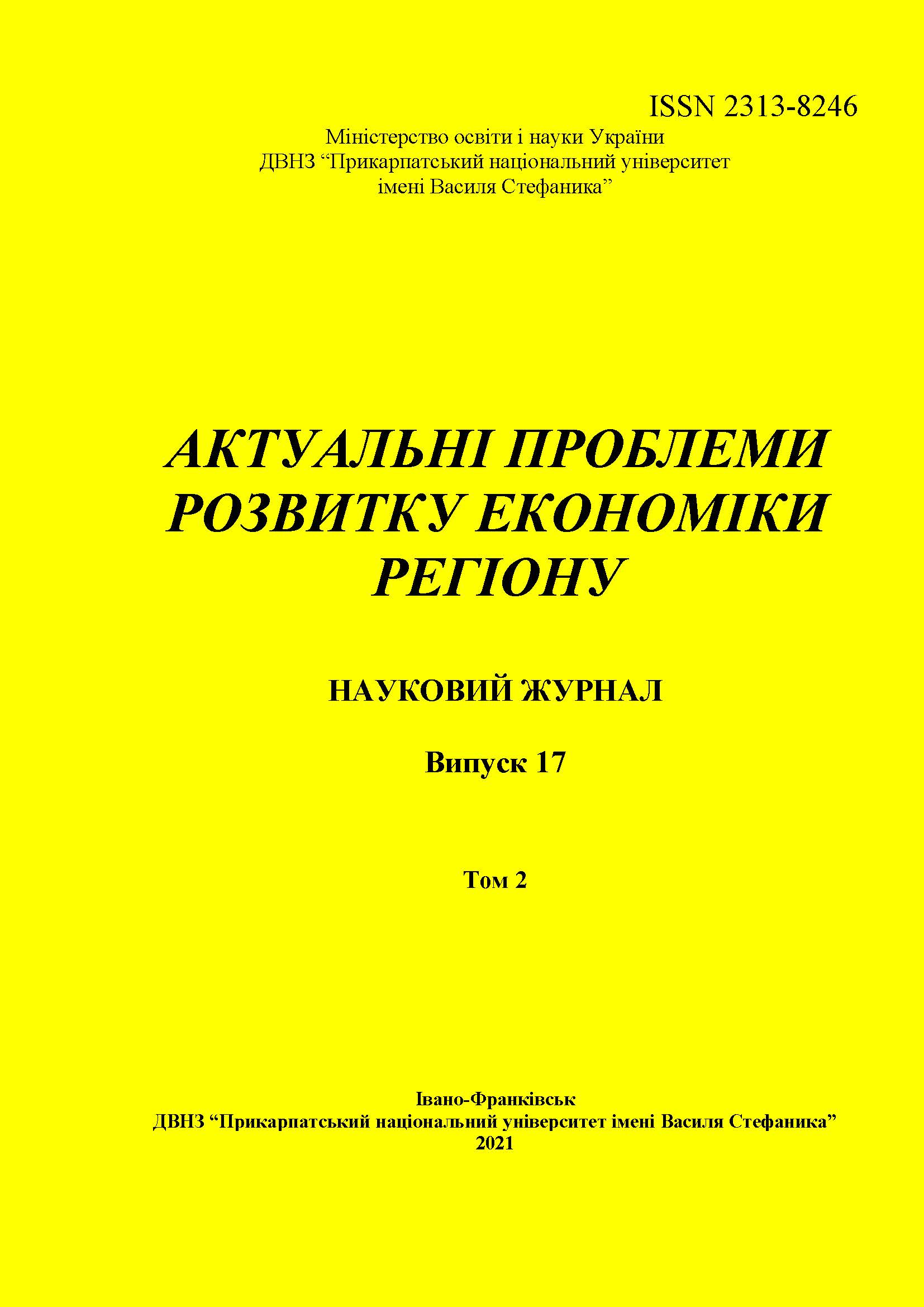REPUTATION MARKETING THE INTERNET: THEORETICAL ASPECTS
DOI:
https://doi.org/10.15330/apred.2.17.108-115Keywords:
reputation, reputational marketing, Internet, imageAbstract
The article substantiates the theoretical aspects of reputation marketing on the Internet. The purpose of this article is to study the theoretical aspects of the development of reputable marketing on the Internet. In the process of writing the article, inductive deductive methods were used, which were used to form the main stages of identifying the level of reputation on the Internet. Methods of economic analysis and comparison were used in developing a strategy for working on the company's reputation on the Internet. The graphical method is used to clearly display the stages of strategy construction and the formation of a basic platform for improving the reputation of Internet networks. An abstract-logical method is used for theoretical generalizations and formation of conclusions. An overview of reputation detection on the Internet is offered: searching for companies through Google, searching for companies through a social network, searching for companies about a company. It has been found that online reviews play an important part in making a purchase decision. It is substantiated that positive feedback from consumers / customers can solve two tasks together: provide a positive brand image; developing relationships with existing customers, increasing their loyalty and turning ordinary consumers into admirers of the brand. The process of developing a strategy to increase the company's reputation on the Internet is proposed, which includes the following main stages: reputation analysis; goal setting; strategy development; monitoring and analytics. It is justified that the state of reputation on the Internet affects the productivity and effectiveness of the organization, as well as focuses on changing what target audience sees the website. To increase the reputation in the network, the authors proposed to use a basic platform to increase the reputation of the Internet. The main directions of improving the reputation of the Internet are proposed: monitoring of the information field around the brand; CROWD marketing; press releases and publications in the media; content marketing; control of reviews on the site. It has been proven that improving the reputation on the Internet is an important aspect of any business on the Internet and part of an effective marketing strategy.
References
2. “When does a brand need to work with reputation?” Iprospect, iprospect.com.ua/blog/v-kakih-sluchayah-brendu-nuzhen-reputatsionnyj-marketing/ Accessed 20 Oct. 2021
3. “Vash osobystyy brend u sotsmerezhakh: yakym Vy vyhlyadayete u Merezhi ta ochakh koleh – i shcho z tsym robyty?” Eba, eba.com.ua/article/vash-osobystyj-brend-u-sotsmerezhah-yakym-vy-vyglyadayete-u-merezhi-ta-ochah-koleg-shho-z-tsym-robyty/ Accessed 19 Oct. 2021
4. Derevyanko OG Reputation of the enterprise in the coordinates of the information economy of the XXI century Effective economy 2012. № 9.S. http://www.economy.nayka.com.ua/?op=1&z=1374 Accessed 21 Oct.2021
5. Dmytruk, E.V. “Causes and consequences of the impact of the company”s reputation on its economic security.” Visnyk of Khmelnytsky National University, vol. 2, no. 4, 2009, pp. 220-225.
6. Krivda, O.V. “Sources and determinants of reputational risk of a modern enterprise.” webcache.googleusercontent.com/search?q=cache:ylcss6miiVAJ:ev.fmm.kpi.ua/article/view/181853/181734+&cd=11&hl=en&ct=clnk&gl=en. Accessed 21 Oct.2021
7. Peredalo, Kh.S., and H.A.Kozar “Social networks as a tool for building the business reputation of the enterprise.” Visnyk-ekon.uzhnu, visnyk-ekon.uzhnu.edu.ua/article/download/130238/125883. Accessed 20 Oct. 2021
8. “Work with negative feedback: what to do and how to respond?” Torgsoft, torgsoft.ua/ua/articles/stati/rabotaem-s-negativnyimi-otzyivami-chto-delat-i-kak-otvechat/ Accessed 18 Oct. 2021
9. Repina, I. M, and V. L.Kovtun. “Corporate analysis of business reputation of the company.” Theoretical and applied issues of economics, no.27, 2012, pp. 237-242.
10. Fedoriv, T.V. “Value of the concepts of "image" and "reputation" in public administration.” Visnyk NADU, academy.gov.ua/ej/ej13/txts/ Fedoriv.pdf Accessed 17 Oct.2021
11. Shkromida, V.V., and N.Ya. Shkromida. “Features of the company”s reputation research. Intellect21, www.intellect21.nuft.org.ua/journal/2019/2019_3/19.pdf. Accessed 20 Oct.2021
12. Castellano, S., and V. “Dutot Investigating the Influence of E-Word-of-Mouth on E-Reputation.” International Studies of Management & Organization, no. 47:1, pp. 42-60, DOI: 10.1080/00208825.2017.1241088
13. Fombrun, C. J., and M. Shanley. “What's in a name? Reputation-building and corporate strategy.” Academy of Management Journal, no.33, 1990, pp. 233-258.
14. Nielsen.com, nielseniq.com/global/en/about-us/ Accessed 20 Oct. 2021.
Downloads
Published
How to Cite
Issue
Section
License
- Authors retain copyright and grant the journal right of first publication with the work simultaneously licensed under a Creative Commons Attribution NonCommercial NoDerivs 4.0 Unported License that allows others to share the work with an acknowledgement of the work's authorship and initial publication in this journal.
- Authors are able to enter into separate, additional contractual arrangements for the non-exclusive distribution of the journal's published version of the work (e.g., post it to an institutional repository or publish it in a book), with an acknowledgement of its initial publication in this journal.
- Authors are permitted and encouraged to post their work online (e.g., in institutional repositories or on their website) prior to and during the submission process, as it can lead to productive exchanges, as well as earlier and greater citation of published work (See The Effect of Open Access)


